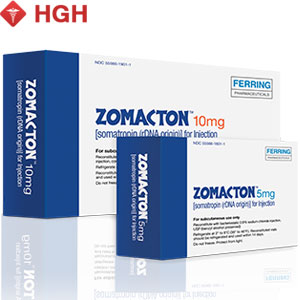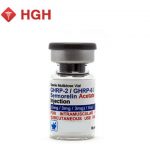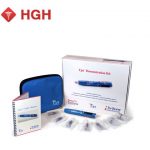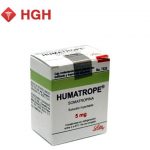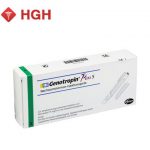 In the 1990s a local revolution in medicine was made. Scientists have found that with age the concentration of hormones in the body decreases. Therefore, if to increase it, many problems can be avoided. Then, experiments have shown that people treated with HGH had an increase in muscle mass and bone density. In this case, the body fat decreased.
In the 1990s a local revolution in medicine was made. Scientists have found that with age the concentration of hormones in the body decreases. Therefore, if to increase it, many problems can be avoided. Then, experiments have shown that people treated with HGH had an increase in muscle mass and bone density. In this case, the body fat decreased.
Later, the results of the experiment were adopted by clinics. With the help of hormone replacement therapy they promise to rejuvenate anyone. However, the study of Albert Einstein College of Medicine revealed the dependence between hgh and cancer: the injection of growth hormone may shorten life. HGH contributes to the development of insulin-like growth factor 1 and DHEA, a precursor of estrogen and testosterone.
Meanwhile, estrogen, other hormones and hgh causes cancer, cardiovascular illnesses, problems with joints. As to insulin-like growth factor 1, its low concentration can help to maintain health.
HGH and breast cancer
Women with high levels of HGH have a higher risk of developing breast cancer. The connection between hgh and breast cancer was proved by the British researchers. This substance (also known as IGF-1) stimulates cell division, contributing to the growth of the organism, especially in childhood. Different experiments were conducted worldwide on its use as a medicine against aging. Recently, however, physicians became interested in its influence on the development of cancer, as during this disease uncontrolled cell division occurs.
Last scientific papers on a possible link with hgh cancer risk and somatotropin were held by British scientists from Oxford University. They analyzed the results of 17 studies conducted in 12 countries with nearly 5,000 women with breast cancer.
It was found that 20 percent of patients with the highest concentration of HGH in the blood had more by 28% of probability to get cancer than 20 percent with the lowest level. The effect was seen mainly in women with estrogen-dependent disease type.
“In the last few years the interest in the possible relationship between HGH and breast cancer has increased, but the results were inconsistent, - said the study leader Professor Tim Key. - All the available international information provides strong evidence that the higher levels of IGF-1 in the woman's blood is, the higher is the risk of this type of cancer. True, it is not completely clear what affects the level of HGH in blood. It is possible that nutrition has a large impact.”
HGH and prostate cancer
Some scientific works have appeared recently which prove hgh and prostate cancer relationship. Does hgh cause cancer?
The possibility of developing cancer seriously concern researchers and clinicians engaged in hormone replacement therapy.
HGH therapy leads to an increased risk of prostate cancer. Now there are fears that the HGH therapy may contribute to more rapid division of cancer cells and tumor growth.
This idea is supported by some experimental evidences. Both HGH and IGF-1 stimulate the growth of leukemia and lymphoma cells in culture.
Among the patients with pituitary insufficiency treated with standard hormone replacement therapy without growth hormone, cancer mortality was lower than the average for the population, while patients with acromegaly had an increased risk of cancer.
"Shock dose" of testosterone against hgh cancer
Physician Michael Schweizer from the University of Washington in Seattle and his colleagues at Johns Hopkins University in Baltimore found that for certain types of prostate cancer the cancer cells begin to die when the body has a high concentration of sex hormone. The researchers suggest that high doses of the hormone disrupts DNA synthesis in cancer cells, causing their death. So, “can hgh cause cancer?” is not the most urgent question, more important is: “Can it help to fight cancer?”
Recently the results of a new method of cancer treatment were obtained. The studies have revealed a paradox of "castration refractory" prostate cancer. These cancers were sensitive to high doses of testosterone: the cancer cells begin to die when the body receives a high concentration of HGH.
But there is a reason to believe that the HGH therapy is able to actually prevent cancer. Some researchers wrote that they did not observed cases of cancer among their patients, even though these people were at an age when we can expect an increase in the incidence of cancer. The incidence of cancer among European patients treated with HGH deficiency didn’t prove to be above average. One case was reported when multi-hormone substitution using growth hormone resulted in normalization of PSA levels in patients with prostate cancer.
A number of experiments have shown that growth hormone revitalizes and rejuvenates the immune system, including cells that recognize and destroy cancer cells. And remember that HGH reaches the highest level immediately after puberty, when the incidence of cancer is the lowest. The incidence of cancer increases simultaneously with the fall of the level of HGH.
“The question of whether HGH increases the likelihood of developing cancer remains unanswered,” – say the researchers, “But it seems that if you are an elderly person and you are given the opportunity to live 15-30 years more, you get more than the fear of hgh cancer. "
Can HGH therapy increase the hgh cancer risk?
There is no evidence that treatment with HGH may contribute to the development of cancer. Some laboratory experiments with cancer cells and mice speak in favor of this assertion, but studies in humans and other large mammals prove the opposite: the use of HGH reduces the risk of tumor progression in patients with severe hormone deficiency by 30-70%.
Scientific research suggests that patients with severe HGH deficiency have in 2-4 times higher risk of cancer than the average for the population. These patients, compared to other people, have the risk of cancer in 2-4 times higher. They are more likely to develop cervical cancer, brain cancer, stomach and so on.
Three studies showed increased prostate cancer risk at low IGF-1. Insulin-like growth factor 1 reflects the degree of activity of HGH(i.e. effect on the body). Protective effect of IGF-1 against prostate cancer have not been confirmed in other studies.
In one of the studies the research was conducted on half of the patients. After about six years the incidence of cancer has decreased by 30% in comparison with the average value, the cases of breast cancer and prostate cancer became in 31-33% and 19% fewer respectively.
HGH can help cure hgh cancer and diabetes?
An international team, which included researchers from the University of Queensland in Australia, has opened a new way to treat diseases such as cancer and diabetes. Researchers led by Mike Waters, professor at the Institute of Molecular Biology at the University of Queensland, published their results in the pages of Science. "People without HGH receptors do not die from cancer and diabetes, which makes them an ideal model for the study," - says Professor Waters.
Professor explains that we do not know much about how HGH works to be able to develop drugs to combat these diseases.
Growth hormone, as well as any other hormone in our body, acts with special receptors, which are unique proteins on the cell surface that bind only to this hormone on a "lock and key" principle, allowing it to transfer certain signals to cells.
A team of researchers suggested that if we learn more about the interaction of HGH cell receptors, it will be possible to identify new targets for drugs against diabetes and cancer.
This assumption has not arisen out of the blue. Professor Waters studied HGH for 45 years. They cloned the first HGH receptor by the global biotechnology company Genentech.
"We figured out how HGH turns on its receptor at the molecular level, and therefore now we have an idea of which part of the molecule it is necessary to target new drugs to help fight these diseases," - said the professor.
